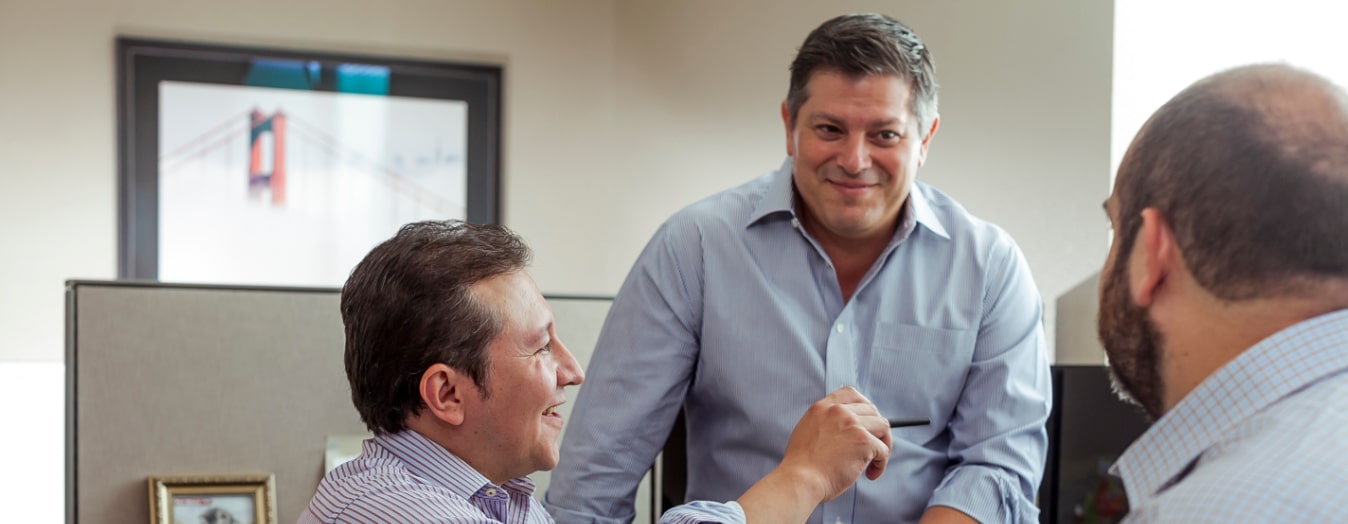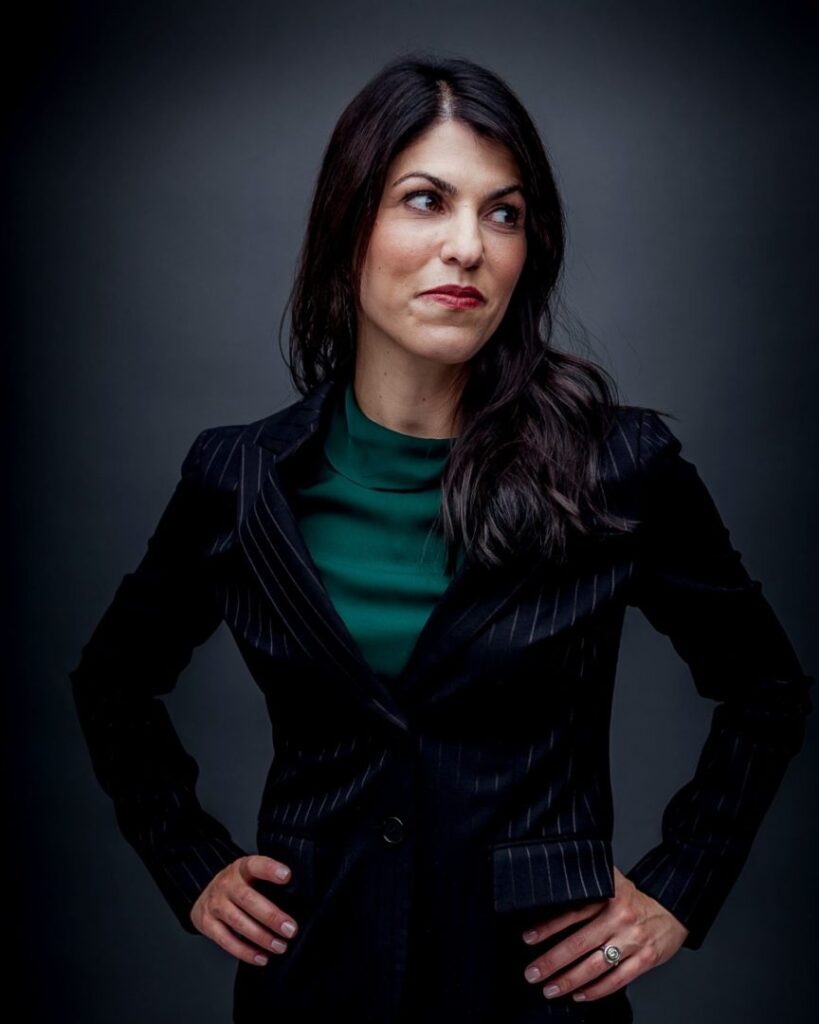In October of 2019, Chase & Associates’ long-time business consultant sat down with Alexis Chase to talk about life, business, and women in packaging. The result was a deep dive conversation filled with authoritative insights and wisdom.
Enjoy!
CONSULTANT: When did you decide to jump into the family business? What were the moments that drove that decision?
ALEXIS: I graduated from Barnard College, Columbia University, in New York City in June of 2001. I didn’t know what I wanted to do, so I moved back to California. As an Art History major, I was interested in gallery or museum work.
I spent the summer working, and lo and behold, 9/11 struck. I think after 9/11, companies and the economy, in general, just went into a state of shock and were not necessarily hiring college grads.
I had always done summer work for my father’s company, whether it was bookkeeping or filing, office type of work. At the time, he needed some extra support answering phones, so I started working for him a couple of times a week, which led to me getting more responsibility.
As I started to have conversations with real people about their lives and their careers, executive recruiting became more interesting to me as a career path. I remember having a conversation with Michael (brother) about it, and basically, we simultaneously got into recruiting together.
CONSULTANT: And how long ago was that?
ALEXIS: 2001. I was doing online research, cold calling to get names of candidates to different places, which eventually meant taking over a desk as a Project Manager.
CONSULTANT: Tell me about the dynamic back then. You start out as a project manager. Michael is a recruiter. Are either of you thinking in terms of ownership at this point or are you just trying to learn the industry and your job?
ALEXIS: No, I was far from that. And Michael was not working in California. Neil, our father, had just had a liver transplant in 2000 in Florida and was not as active in the business for a good five years or so.
CONSULTANT: I’ve known you and Michael for more than a few years, and I had no idea that you got a degree in Art History! And I had no idea that 9/11 and your father’s liver transplant informed your decision to jump into recruiting. I’ve learned a lot in seven minutes flat!
And so, you spent, if I remember correctly, you spent five years in research and as a project manager?
ALEXIS: Yes, that’s about right. I had a lot of fears around getting on the phone and interviewing people. I was still learning the industry and the vernacular. It was tricky, but then, over time, I built my confidence and could have conversations with people that were very different from me.
I didn’t have kids at the time. I wasn’t into sports. I didn’t play golf or watch football. I had to really figure out ways to draw some connections to them. I was like, “What do I talk to these people about?” So I had to find my way into that.
And this is long before LinkedIn was created. I was doing a lot of cold calling. It was the old-fashioned way (now) of doing it, but that’s what I would spend my days doing.
I was finding people that were getting placed, the reward of that success, how that makes you feel when you do something well, it remains very rewarding.
CONSULTANT: Did that surprise you? I mean, you were an Art History grad!
ALEXIS: It did because I never grew up having an interest in my father’s business.
CONSULTANT: It’s very interesting to me that you went from New York City art to recruiting and packaging. That’s like Banksy joining an accounting firm!
How would you say that that time as a project manager prepared you to be a more effective recruiter?
CONSULTANT: I was exploring going to graduate school and thinking about either going to a bigger recruiting firm or trying something different, so I put an exit strategy together for myself. But ultimately, I decided to embrace it instead of resisting it. As a result, I started focusing less on my project management and more on developing myself as a recruiter.
CONSULTANT: How did all that eventually pivot to you and Michael taking over as owners? How did all of that come to come about?
ALEXIS: It was just time for a lot of reasons. Neil (father) was moving towards retirement, and we were taking over and running the whole operation for the most part. And then, we started working with you (Bob), and we began to formalize the transition.
I was about 32, still pretty young in my career, I was just beginning to get some successes under my belt as a recruiter. I was pregnant with my first child, so it was a lot at once.
CONSULTANT: I guess so!
ALEXIS: For me to figure out what my role was gonna be in all these different phases of my life was interesting. I think we coasted for a little while, and then we started working with you to get more of a handle of how to make this less of a mom and pop kind of operation, to professionalize ourselves, the company, and the brand.
CONSULTANT: But what I love is that through your story, I see a very resolved Alexis Chase that way back when had a lot of business savvy. I suspect far more so than you realized. And you were willing to double down on that path, sight unseen! Impressive. Few would be willing to take those risks.

CONSULTANT: What motivates you to be a strong recruiter?
ALEXIS: My clients and my reputation.
CONSULTANT: What motivates you to be a strong business owner?
ALEXIS: Stability in that, the more secure and well-run and functioning my company is, the more stable the company is, the more stable I am. I suspect the same is true with our team. People need stability.
CONSULTANT: What would you say is your superpower?
ALEXIS: I think I have the ability to make people feel special.
CONSULTANT: Nice! Tell me more.
ALEXIS: I can be a chameleon. I can always find something to talk about with someone. I can always find a way to relate to them in a way that I think helps them relate to me.
In my friendships, I put a lot of time into remembering things, remembering occasions, making people feel special when they need to be, being there when they need me. And I think from a work standpoint too, I try and do the same thing. It’s just who I am.
CONSULTANT: So let’s talk about women in packaging. Tell us how Cocktails & Conversations came to be. What’s the back story?
ALEXIS: I was raised by a very strong, professional, highly educated mother. My sister is also a high-achieving, graduate schools, and career-focused person. I have a lot of really good women friends, like a lot, and I invest a lot of myself in those friendships.
I think to measure what I go through on a day-to-day basis as a mother, as an owner, as a woman in a professional world, as a partner in a relationship, there are aspects to those experiences that only other women understand.
I’ve also gotten to a maturity level where I can really identify with the challenges of being a woman in a male-dominated industry. It’s very clear to me now. Whereas when I was younger, I was just trying to fit into the industry. It’s not always easy to be the minority in an industry or setting.
CONSULTANT: I hear a couple of themes like community, empowerment, mentoring. How did this go from an idea to an event?
ALEXIS: I’ve tasked myself with building a network of friendships with other women in the industry so that when I am out there in the world, I’ve got friendly faces that I can call upon for support. And I think there is a lot of value to connecting with women that understand the industry.
When I was invited to a happy hour last year with women in the industry, some of which I had placed, it felt very like getting together with friends as opposed to colleagues. There was something very comforting about it. And it was women of all ages and all levels in their careers.
I thought to myself, “Why haven’t I been utilizing my ability to bring people together?” which is what I do in my personal life. In some cases, a woman might be the only female salesperson in the whole company. Sometimes, you don’t feel like being one of the guys!
Creating an opportunity for more women to get to know each other and connect, build friendships that create support instead of feeling isolated, is very attractive to me.
CONSULTANT: This is a great story, very inspiring.
ALEXIS: There’s women in positions of power in the industry, but there’s no company where women are the majority, you know? So you might not be able to find it at your own company.
It’s not about getting to know someone so one day I can place her, I want to get to know these women because I want to be able to pick up the phone and to give and get counsel. It’s like, “I have two kids and work full time; how do you do it?” I think these common threads of connection could really make a difference in our industry.”
CONSULTANT: So you had your first Cocktails & Conversations event at PackExpo, what’s next?
ALEXIS: I’m in research mode. There’s other events for women that I have not participated in that I want to explore. A part of me is really curious about what’s out there right now for women in the industry. There’s a conference in Nashville in November called Women Breaking the Mold in Plastics that I want to check out, for example.
I’m curious as to what already exists for women; then I’ll either identify where I could offer additional resources or options. The last thing I want to do is create something that creates competition with another female-driven organization. I’m in fact-finding mode.
CONSULTANT: You spotted a real need, right? And then you got to work to fill that need. I think you’re in it for the right reasons. I love where all this could go for you, the industry. What were your big takeaways from your first happy hour event?
ALEXIS: Women feel pulled in lots of different directions. Women that weren’t there wanted to be there but couldn’t! I experience this every day on some level. What should I be doing? I have a lot of options on how to spend my time doing. Professionally, it’s a similar type of thing, too.
I think another big takeaway was young women are coming into this industry. Probably 25% of the participants were women under 30. They’re looking for mentors. They’re looking for stories of how women have succeeded in this industry. But it’s harder for senior-level people to show up to these events.
We need to show up for the next generation. We need to invest in the future of our industry. Understanding women, their journey, their stories, and challenges, is critical to our success as a sector. Not doing so puts our industry at risk.
Creating connections that give women support, I want to help people and businesses prioritize that, because it’s important.
CONSULTANT: What do you see as the big opportunities for women in packaging?
ALEXIS: I think that companies want to hire more women and want to find more women that are promotable. I think they’re recognizing that their customers are more diverse than they used to be when it comes to age, ethnicity, and gender.
If you’re not connecting with your customers the same way, because your customers are changing, something needs to change. I think packaging companies know they need a more diverse workforce.
CONSULTANT: If your daughter were to build a career in the packaging industry, what advice would you give her?
ALEXIS: I would tell her to find a company that has women in leadership roles already, not a company that’s trying to change that necessarily, but a company that’s already successfully diverse.
CONSULTANT: Why would you give that specific advice?
ALEXIS: Because I think it’s a very hard ceiling to break through in this industry. I believe that men in leadership positions, in some cases, just are not there yet.
CONSULTANT: Sounds like you want her to stack the deck. If you’re going to go into this industry stack the deck in your favor, and the way you do that is by shopping company culture.
ALEXIS: Yeah, be strategic about it. Find a company that supports women that understands women, and therefore will support your career. If you (her daughter) decide to have a family and children, plug into a company that understands what that takes. Find the culture that will not hold having kids against you, and that will help you succeed.
CONSULTANT: I want you to remove yourself from packaging for a moment and pretend that you got invited to speak at a women’s only entrepreneurial conference. Let’s say, 200-300 female entrepreneurs in the audience, all different ages. What advice would you give a woman attempting to start her own business?
ALEXIS: I think some women can be self-critical and doubt themselves a lot. I think that’s not productive. Nobody’s perfect. And we’re all hard on ourselves, but don’t let that get you stuck or get into your mind too much. You’re not going to be perfect at all of it, focus on what you do really well. Make it the thing that people remember.

CONSULTANT: Thanks for hanging out with me today. Even though I’ve been working with you for almost a decade, I learned a ton about your life and beliefs. You have a great deal of wisdom to share.
ALEXIS: I think it’s always fun to tell my own story. I do talk about some things like this with friends, and they ask me about my work or my past and I get into it. I think they’re always surprised to hear a little bit about my perspective on my journey.
What does this have to do with executive recruiting? EVERYTHING! The owners of Chase & Associates bring a great deal more to the table than their exceptional recruiting skills. You cannot recruit visionary leaders without being a visionary leader.
Chase & Associates
We Have Your Back




